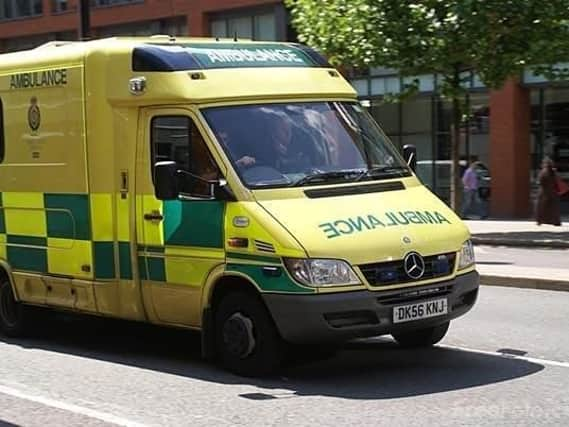Probe after heart attack patient waited 90 minutes for ambulance


The tragedy comes days after service bosses issued stern warnings about the impact of 999 time-wasters placing unnecessary strain on call-handlers.It also brings into the spotlight the winter pressures placed on our health service, as tens of thousands across the country now face having hospital appointments delayed due to overwhelming demand on hospitals.Treatment for the Lancashire man, understood to be in his 60s, was further delayed as paramedics required assistance from a fire crew in order to enter his Chorley property.North West Ambulance Service (NWAS) said they received a call for assistance at 6.07am on Tuesday and a crew arrived at 7.45am.The case was classified as a ‘category two’ emergency as the patient was conscious and breathing - meaning the target time average is 18 minutes and a vast majority should be dealt with within 40 minutes.An NWAS spokesman said: “We would like to offer our sincere condolences to the patient’s family. “Our response time was not as quick as we would like and we are making attempts to contact the family as part of our investigation into the incident.“In the meantime, if the patient’s family would like to contact us, they can do so by contacting [email protected].”It is not known whether the man had passed away by the time the emergency crew gained entry, or if he died later following treatment.Lancashire Fire and Rescue Service confirmed a fire crew had attended to help paramedics gain entry to the property.In a drastic step to try to free up hospital staff and beds, NHS England on Wednesday advised hospitals across England to delay pre-planned operations and routine outpatient appointments until the end of the month due to severe winter pressures. They also said the deferral of non-urgent inpatient elective care - such as hip replacements - should be extended until January 31.Officials have estimated that this could lead to up to 55,000 deferred operations, although cancer operations and time-critical procedures should go ahead as planned.The measures from the health body were announced following a meeting of its National Emergency Pressures Panel, chaired by Professor Sir Bruce Keogh.Health Secretary Jeremy Hunt last night apologised to patients affected. He said: “There are real pressures, no question about it.“This is the busiest week of the year for the NHS. If you are unfortunately going to have to cancel or postpone some operations, to do it in a planned way, and that’s why this year this independent panel has decided to take this decision. Although if you are someone whose operation has been delayed I don’t belittle that for one moment, and indeed I apologise to everyone who that has happened to.”Shadow Health Secretary Jonathan Ashworth blasted NHS “under-funding” and accused Prime Minister Theresa May of “putting her head in the sand.”NHS England is expected to publish its weekly operational statistics today.• Despite repeated requests by the Post, Lancashire Teaching Hospitals Trust, which runs Preston and Chorley hospitals, failed to provide any information yesterday on how many operations may be cancelled.Operations and appointments have been cancelled at Blackpool Victoria Hospital after bosses said the ‘numbers and sickness levels of patients has exceeded expectations’.Extra medical and nursing staff have been drafted in, and more beds made available, because of the ‘extreme pressure’, the trust said.It comes after hospital staff took to social media to warn of an ‘unprecedented’ number of patients. One nurse said in a Facebook post that a ‘major incident’ had been declared. This was denied by trust bosses.A Fylde Coast NHS spokesman said: “A number of routine operations and appointments have been cancelled in an effort to give patients the best possible care to those who need it most.”